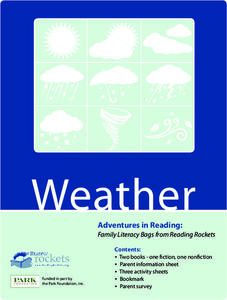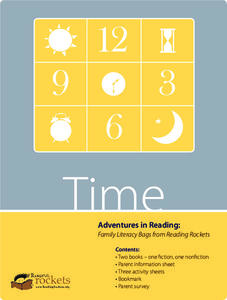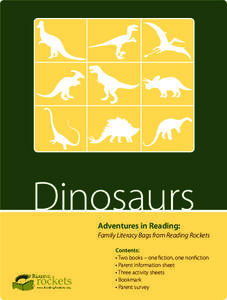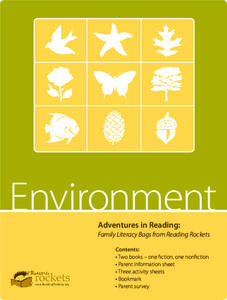Lions Clubs International Foundation
Mindful Self-Management Exercise: Goal Setting
Boost self-management skills with a sports-themed prompt that challenges scholars to reflect on their goals, choose one, and make a plan to achieve it.
Lions Clubs International Foundation
Mindful Self-Awareness Exercise: Accurate Self-Perception
Scholars think to themselves about what is something that they are good at and what makes them a good person. A prompt asks them to reflect on their feelings when they think of their positive attributes.
Lions Clubs International Foundation
Mindful Self-Management Exercise: Self-Motivation
Encourage self-motivation with an activity that allows scholars to reflect on their challenges and set goals to better them. A script prompts pupils to listen to the Can-Do Coach inside them. An inspiring statement reminds...
Lions Clubs International Foundation
Mindful Self-Awareness Exercise: Recognizing Strengths
Learners think of something they're good at and reflect on how they feel about it. Pupils then think of ways to be even better at it and set a mental goal to practice.
Lions Clubs International Foundation
Mindful Self-Management Exercise: Managing Stress
An exercise offers young scholars a coping skill to manage stress or other strong emotions. Learners identify the emotion, focus on how their body feels physically, then pretend they are holding a balloon over their heads, blow their...
Lions Clubs International Foundation
Mindful Self-Awareness Exercise: Building Self-Confidence
Encourage scholars to build self-confidence by giving themselves a "word hug." Learners calm and focus their bodies to reflect on how they feel great, then provide a mental it verbal pep talk listing the positives that came to...
Lions Clubs International Foundation
Mindful Self-Management Exercise: Impulse Control
A coping skill helps to manage emotions. Young scholars pretend they are a remote control. When they feel strongly about something, they pause their actions, take a deep breath, reflect, and press play to get back to what they were doing.
Lions Clubs International Foundation
Mindful Self-Awareness Exercise: Identifying Feelings
Young scholars identify feelings through facial expressions and body language. Learners listen for a feeling word, then act it out and discuss how they portrayed it.
Lions Clubs International Foundation
I Can Keep Calm
Strong emotions may arise at anytime and any where. This activity boosts self-awareness and management for when young learners require assistance with their feelings. Tips include: remaining calm, breathing, explaining how they feel, and...
Lions Clubs International Foundation
Introduction to Mindful Breathing
Ten minutes are all you need for a breathing exercise designed to bring calm and focus. Young scholars get their wiggles out, then shift their gaze and belly breath, paying close attention to how they physically feel.
PBS
Reading Adventure Pack: Building
Scholars become architects in an engaging unit on building structures. The Reading Adventure Pack features Roberto: The Insect Architect by Nina Laden and Construction Zone with photographs by Richard Sobol and text by Cheryl Willis...
PBS
Reading Adventure Pack: Weather
A reading adventure pack, featuring a fiction and nonfiction book focuses on the weather. Scholars read Cloudy with a Chance of Meatballs by Judi Barrett and Seymour Simon and then complete three creative activities. Participants craft...
PBS
Reading Adventure Pack: Cooking
A Reading Adventure Pack focuses on cooking. Scholars participate in three hands-on activities after reading the fiction book Easy as Pie by Cari Best and the nonfiction book How Did That Get in My Lunchbox? by Chris Butterworth....
PBS
Reading Adventure Pack: Oceans
Flotsam by David Wiesner and The Magic School Bus on the Ocean Floor by Joanna Cole, illustrated by Bruce Degen, begin a reading adventure pack focusing on oceans. With story listening and thoughtful discussion, scholars complete several...
PBS
Reading Adventure Pack: Rocks
A Reading Adventure Pack focuses on rocks. Scholars participate in three activities after reading a fiction and nonfiction text—The Jade Stone, a Chinese folktale adapted by Caryn Yacowitz, and Rocks in His Head by Carol Otis Hurst....
PBS
Reading Adventure Pack: Folktales
Following a reading and thorough discussion of books—Anansi the Spider: A Tale from the Ashanti by Gerald McDermott and The Moon Book by Gail Gibbons—scholars complete three activities. First, they use playdough or cookie dough to create...
PBS
Reading Adventure Pack: Time
An activity packet explores the concept of time. First, scholars read two stories—The Very Grouchy Ladybug by Eric Carle and Telling Time: How to Tell Time on Digital and Analog Clocks! by Jules Older, illustrated by Megan Halsey....
PBS
Reading Adventure Pack: Dinosaurs
Two books—Dinosaurs by Gail Gibbons and Danny and the Dinosaur by Syd Hof—begin a learning experience in which scholars complete three creative, imaginative, and real-world activities. First, pupils create a puzzle featuring their...
PBS
Reading Adventure Pack: Environment
A fiction and nonfiction text, The Great Kapok Tree: A Tale of the Amazon Rain Forest by Lynne Cherry and I See a Kookaburra! Discovering Animal Habitats Around the World by Steve Jenkins and Robin Page begins a learning experience in...
Museum of Science
Balloon Racers
Watch those balloon cars go! Scholars build racers that run using the power of balloons and conduct races with the cars. They learn about Newton's third law of motion and how it applies to their balloon racers.
Museum of Science
Sound Design
Hear about a great resource on sound? An interesting hands-on activity has learners construct a device that will soundproof a phone or speaker. They test out different materials to see which ones best absorb sound waves.
Museum of Science
City Circuit
Here's an electric lesson on electricity. Pupils create an electric circuit to model a city's electric system. They then test out different materials to see whether they are conductors of electricity.
Museum of Science
Terrarium
Make a premium terrarium. Learners create a miniature terrarium to study ecosystems. They use a clear container, along with rocks, soil, moss, leaves, woodland plants, earthworms, and bugs to construct their terrariums.
Museum of Science
Make a Map
It's important to know the final destination. Scholars first measure distances in a region of interest using a standard measuring device or by counting steps. They then use an appropriate scale and graph paper to create a map of the...

























